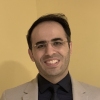Since the October 7, 2023, massacre, Israel finds itself at war with not just Hamas but a broader regional Islamist alliance. This network of states and ideologies seeks to thwart Israel’s defensive gains and embolden anti-Israel forces across the Islamic world, and beyond, often aligning with segments of the global left. Amid this confrontation, both Kurds and Israelis find themselves targeted by the same forces. These two peoples, as natural allies, are bound by shared struggles against oppressive ideologies.
Kurds and Israelis find themselves targeted by the same forces.
Yet, these very regimes are strategically misrepresenting the Kurds. Across the Middle East, regional states long have portrayed the Kurds in conspiratorial terms: as “jinn,” as agents attempting to establish “a second Israel,” as imperialist pawns, or as saboteurs of Islamic unity. This demonization stems in part from the Kurdish national movement’s rejection of political Islam and pan-Arab, pan-Iranian, or pan-Turkish ideologies. In response, these regimes have tried to contain the Kurdistan cause—not by resolving it, but by subsuming it into their own geopolitical narratives; increasingly, they use anti-Israel sentiment to frame and manipulate “Kurdish representation.”
This trend has created a crisis of representation for the Kurds. Stateless and surrounded by hostile regimes, Kurds have no consistent, recognized voice in international affairs. Their interests are filtered through the agendas of states that view them as a threat. The result is that what passes as “Kurdish representation” is often a projection of Turkish, Iranian, or Arab policy wrapped in Kurdish garb.
This is no accident. To prevent the emergence of a “second Israel” in the form of an independent state of Kurdistan, regional powers have co-opted Kurds into high-profile diplomatic roles—while denying them recognition, rights, or political autonomy. Turkey’s foreign minister, Hakan Fidan, is a Kurd. So, too, are Iraq’s president, Abdul Latif Rashid, and foreign minister, Fuad Hussein. Iran’s president, Masoud Pezeshkian, is an Azeri who was born in the Kurdish city of Mahabad. Even the Union of Muslim Scholars—a Qatar-aligned group that recently issued a fatwa calling for jihad against Israel—is led by Ali al-Qaradaghi, who is a Kurd.
This is not inclusion. It is strategic misrepresentation.
These appointments mask the anti-Kurdish and anti-Israeli nature of these regimes. In Iraq, Kurdish participation in government stems from American pressure to maintain the country’s territorial integrity—not from genuine recognition of Kurdish sovereignty. Across the region, Kurdish visibility in state structures is being used to deflect attention from the Turkish and Iranian cores of regional anti-Israel policy.
Through this maneuver, the Kurds’ host states reframe the issue of Israel with regional states as a problem between Israel and the Kurds. And without a state of their own, Kurds lack the diplomatic and strategic tools to challenge this distortion. Instead, these regimes exploit the vacuum to manipulate Western perceptions—and often succeed.
By fostering real Kurdish representation ... the West can help expose and counter the region’s anti-Israel agendas.
The consequences are visible. Kurdish political organizations, including Kurdish governments in Iraq and Syria, have been unable to articulate an independent policy toward Israel, in part due to regional threats and genocidal campaigns, but also because of Western indifference. The absence of international support for the Kurdistan Regional Government’s 2017 independence referendum, along with the abandonment of Afrin during Turkey’s 2018 military aggression into Syria and its subsequent occupation, exemplifies the West’s ongoing neglect of the Kurdish cause.
It does not have to remain this way.
The United States and its allies can help reverse this dynamic by supporting Kurdish autonomous governments that advocate for self-determination and regional stability. By fostering real Kurdish representation—whether through autonomy, enhanced political institutions, or military support—the West can help expose and counter the region’s anti-Israel agendas.
Kurds who represent their host states on the international stage are, in effect, representing the very systems under which their own people suffer—systems that deny Kurdish rights, identity, and existence. For these high-ranking assimilated diplomats, “Kurdistan” holds no meaning. Yet they should be concerned about the implications of their roles. While global powers repeatedly have betrayed the Kurds, it is equally vital that Kurds remain vigilant against the agendas of their host states and avoid becoming instruments of their repression.








